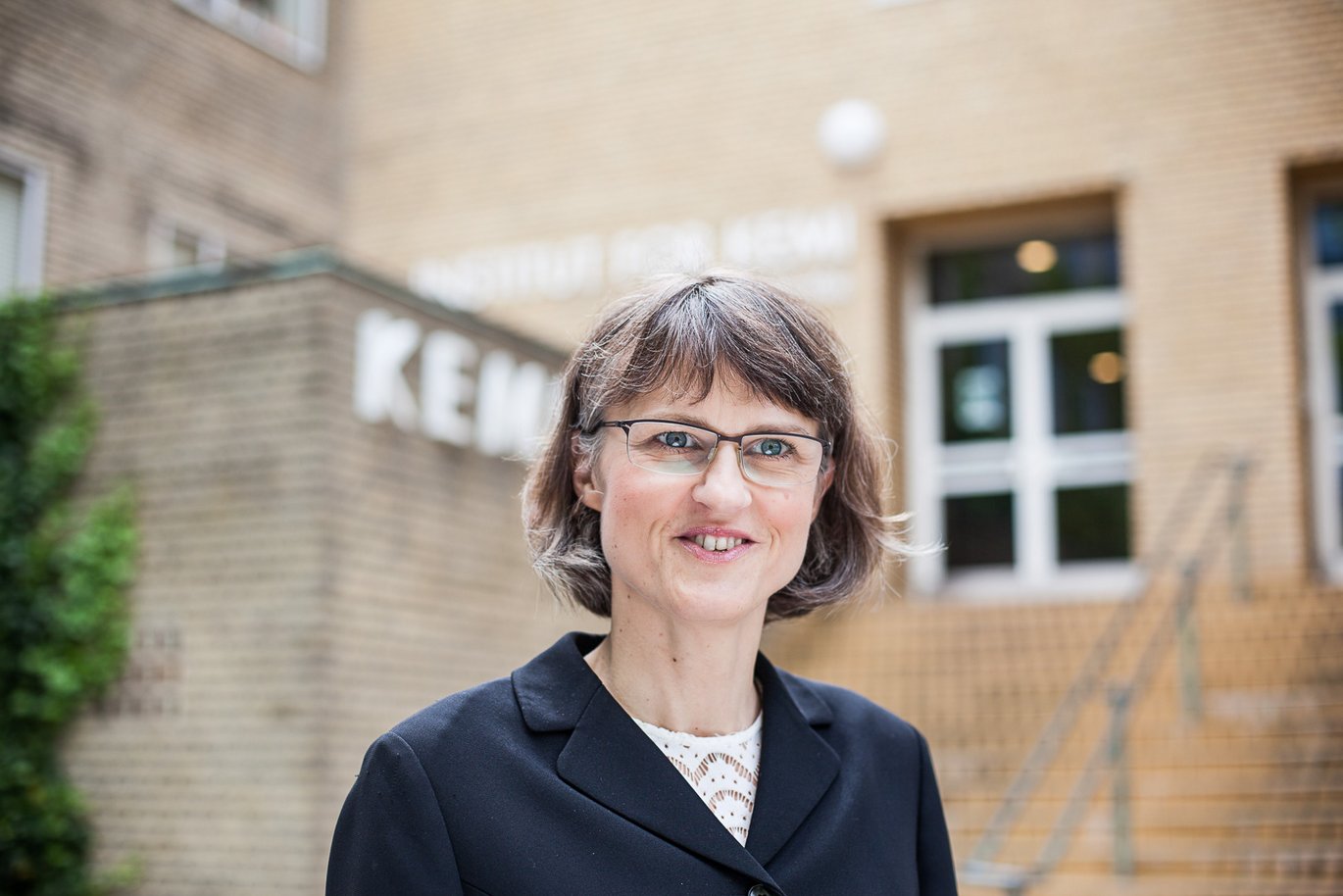A NEW BASIC RESEARCH CENTRE
Clearly stated objectives, many meetings in the research group, qualified sparring and plenty of time. According to Professor Merete Bilde from the Department of Chemistry, these are some of the reasons why she received a grant from the Danish National Research Foundation (DG) and will soon head the upcoming Center for Chemistry of Clouds.

The idea to apply for funding for a DG centre arose from a group of researchers at the Department of Chemistry who held weekly Zoom meetings during the Coronavirus lockdown with academic presentations and scientific discussions.
They also discussed how they could complement each other academically. They slowly began to design a joint research project, and decided to accept the offer of a pitch session organised by the Research Support Office in 2021, where they could present the idea of a DG centre for peers and research support staff.
“We presented the overall framework at the pitch session. We were asked some good questions about how the centre could contribute to solving some of the world's problems and how it would contribute to the research field in a new way. We received really good feedback and support. And they could see that we were a good team. So there was strong support for us to approach the DG with our expression of interest. In fact, all these insightful questions helped sharpen our focus. They really spurred us on," says Merete Bilde.
She explains that the group held many meetings while preparing their expression of interest. “We discussed the idea carefully and spent a lot of time on it. And it was very important for us all to know what direction we were going to take. We believe it created the basis for an inspiring collaboration. It was a dream come true,” says Merete Bilde.
Sparring
The group set up a shared document for everyone to work in. As head of the group, Merete was in contact with Aisha Rafique from the Research Support Office, who regularly provided feedback. “The expression of interest can only be five pages long, so it had to be five razor-sharp pages. And it was really good to have someone from the outside read it. Aisha gave feedback on the writing style, structure and organisation of the expression of interest, and helped ensure that we addressed every aspect of the call,” says the professor.
She found receiving regular feedback very beneficial. That is why it is always important to send something to the Research Support Office for feedback, even if it is not yet quite perfect.
The next step – the application
Merete Bilde and her research group spent a lot of time on their final application. The building blocks were in place, but the group wanted to expand the application with new perspectives on the research field. They therefore held presentations for each other about what they had been working on since the expression of interest was submitted. “Everyone in the group is a chemist, but everyone has different fields of research. And that's why it's important that we constantly share our knowledge with each other. An important part of the application was communicating how the different fields interact to provide new knowledge," says Merete Bilde.
Of course, they had a plan for the process of writing their application. Along the way, they received feedback from Aisha from the Research Support Office and Jacob Ramsay: the secretariat manager at the Department of Chemistry. “Feedback is important to improve the application, and to ensure that you address every requirement in the call. It’s easy to overlook something during the writing process,” says Merete Bilde. She found the writing process to be both instructive and demanding, and she believes that the feedback they received from colleagues and the Research Support Office was invaluable. The last step in the application process was an interview with the DG. She felt well-prepared for this interview because of the trial interviews with the Research Support Office. “The trial interview was also really good. I’d recommend accepting the offer. The trial was very realistic, with the same setting as the real interview,” says the professor.
Some advice from Merete Bilde if you have an idea for a DG centre:
• Accept the offer of a pitch session and feedback along the way.
• Allot plenty of time for the application process.
• Prioritise spending time in the research group to create a platform for further collaboration.
• Get help with the budget.
• Accept the offer of a trial interview.
Read more about the DG centre here.
Link to the Research Support Office.
Link to the Danish National Research Foundation.